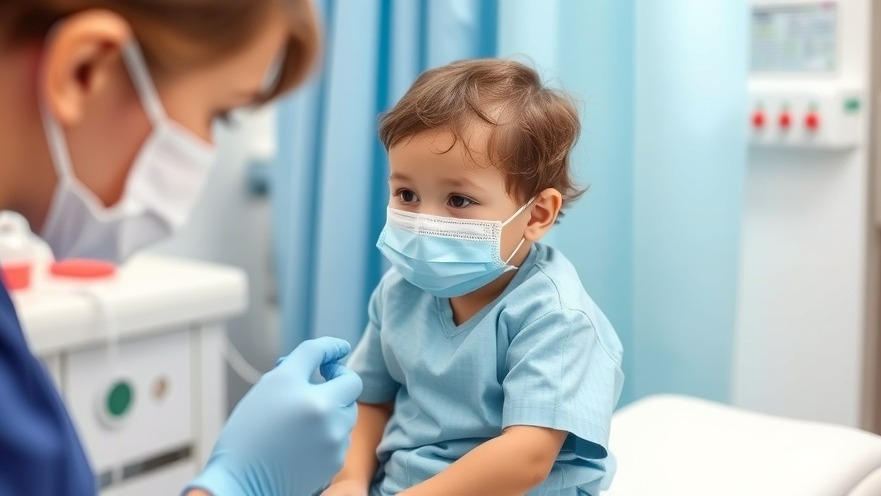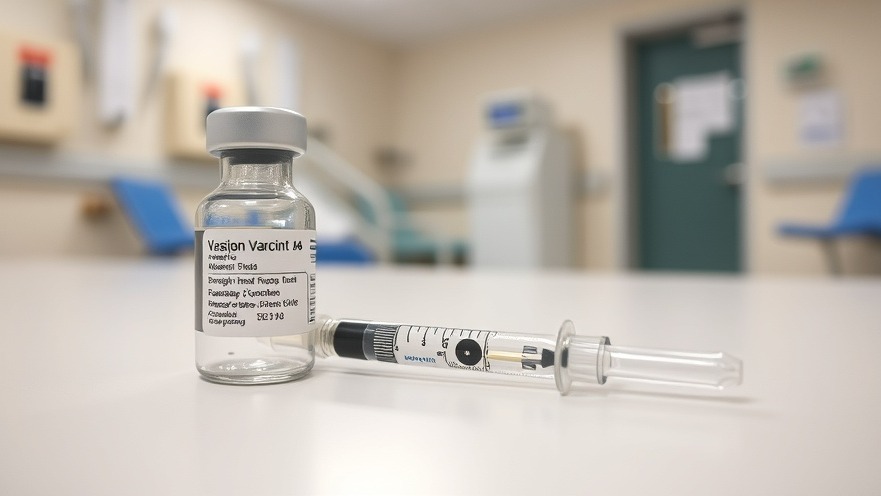
RFK Jr.'s MAHA Report: A Deep Dive into Child Medication Claims
In recent months, the report from Robert F. Kennedy Jr.'s Make America Healthy Again (MAHA) Commission has generated significant controversy, especially surrounding its claims about the mental health treatment of children. The assertion that “American children are highly medicated” raises concerns about the diagnostic criteria that lead to medication and the implications this has for their long-term health. Clinical professionals need to engage in a deeper conversation about the accuracy of mental health information reaching parents and the importance of reliable treatment methods.
Understanding the Claims in the MAHA Report
The MAHA Commission argued on numerous occasions that psychotherapy is generally more effective than medication for treating children's mental health challenges. To back this claim, the report cited a study by psychologist Pim Cuijpers. However, Cuijpers himself pointed out that his research was exclusively focused on adults, emphasizing that treatments for adolescents vary significantly. This situation illustrates a troubling trend in the health communication landscape—using misrepresented or irrelevant data can lead to widespread misinformation.
Connecting with Patients: The Role of Accurate Information
For medical concierge practice owners who prioritize patient connection and thorough care, it’s crucial to challenge these narratives effectively. The MAHA report’s inaccuracies could perpetuate stigma about medication in mental health treatment. Practitioners need to reassure parents that medications can play a vital role alongside therapy, as academic research supports the efficacy of combined approaches. Demonstrating compassion when discussing mental wellness can significantly build trust with patients.
The Impact of Misleading Claims on Patient Care
The MAHA report has highlighted an essential discussion about mental health advocacy and advocacy groups' responsibilities. Claiming that prescription rates for antidepressants in teens have increased 14-fold between 1987 and 2014, without context or clarification, only serves to spread fear among parents. This can lead to patients or guardians dismissing necessary treatments out of fear instigated by misleading information. It’s vital for healthcare professionals to counter such narratives with data-driven insights drawn from reputable resources, ensuring parents have a clear understanding of treatment options.
Empowering Parents with Knowledge
One of the unique challenges within the pediatric mental health arena is educating parents regarding the array of treatments available. With the multitude of studies available, concierge practices have an opportunity to guide conversations effectively. Drawing from solid evidence, practitioners can advocate for treatments approved by reputable organizations to inform parenting decisions.
Changing Perspectives: Why Empathy in Health Communication Matters
As healthcare providers, embracing empathetic communication in discussing medication and mental health can enable real connections with patients. Articulating that both therapy and medication have valuable places in treatment affirms that health care isn’t one-size-fits-all. Instead, it’s a tailored approach designed to suit individual needs. Moreover, in light of confusing and often alarmist reports, being the trusted voice of knowledge and clarity can significantly enhance a practice’s reputation.
Encouraging the Conversation: A Call to Action
Now more than ever, healthcare practitioners must be vigilant in promoting the correct narrative surrounding children's mental health treatments. As trusted guides in these discussions, medical concierge practices have a responsibility to advocate for nuanced, evidence-based strategies that incorporate both therapy and medication when suitable. Consider reaching out to your local community, fostering workshops and discussions that empower parents with accurate information. This engagement can solidify your practice's reputation as a leading authority on pediatric mental health.
The MAHA report serves as a significant reminder about the importance of accuracy and transparency in health communication. As practitioners, contributing to a more informed and compassionate approach will not just benefit individual patients but the entire community.
 Add Row
Add Row  Add
Add 






Write A Comment